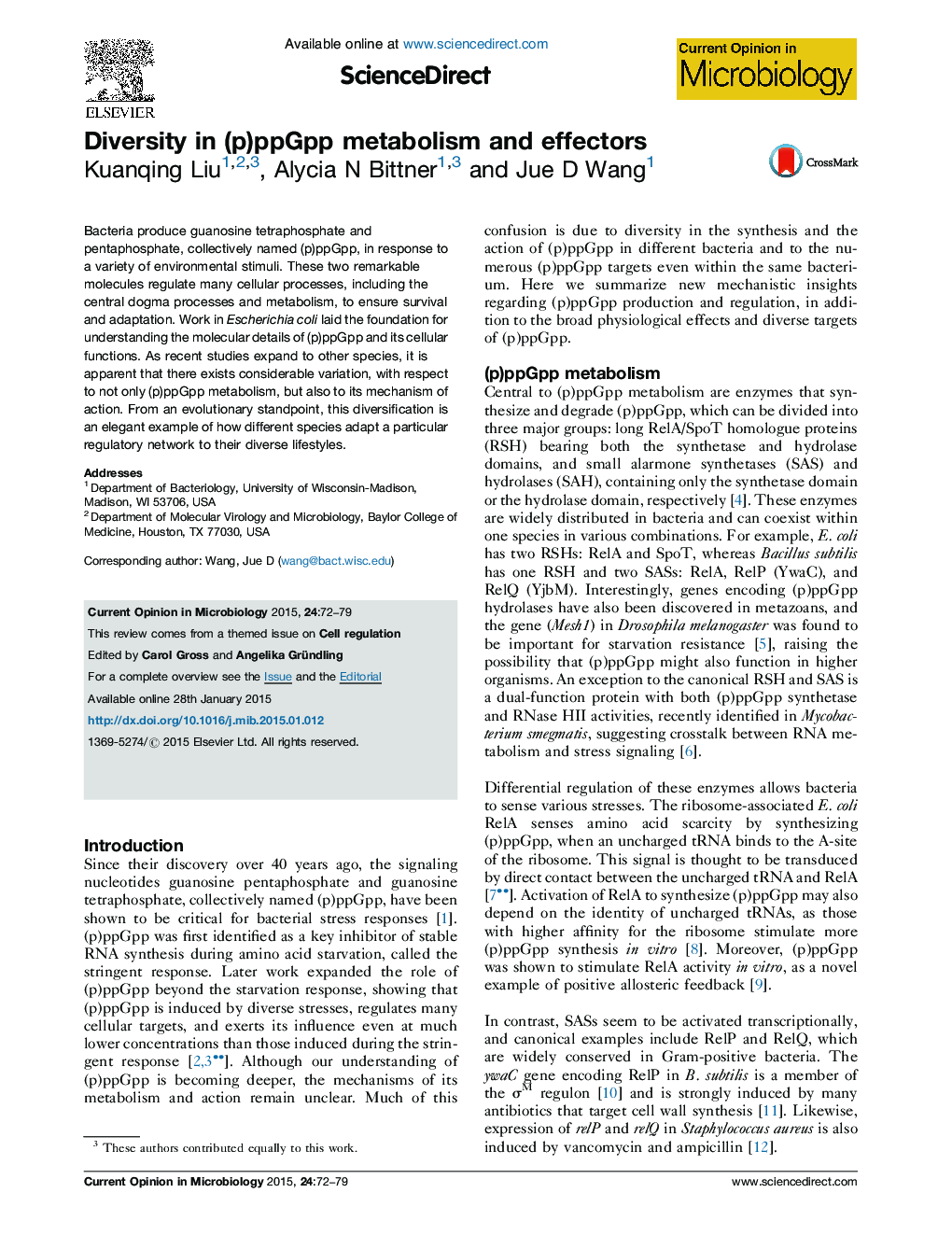| Article ID | Journal | Published Year | Pages | File Type |
|---|---|---|---|---|
| 3399055 | Current Opinion in Microbiology | 2015 | 8 Pages |
•(p)ppGpp metabolic enzymes sense diverse stresses.•(p)ppGpp regulates transcription initiation by targeting RNAP or GTP levels.•(p)ppGpp controls replication, translation, and metabolism to allow stress survival.•(p)ppGpp coordinates central dogma processes to prevent conflict during stress.•(p)ppGpp contributes to antibiotic tolerance and resistance.
Bacteria produce guanosine tetraphosphate and pentaphosphate, collectively named (p)ppGpp, in response to a variety of environmental stimuli. These two remarkable molecules regulate many cellular processes, including the central dogma processes and metabolism, to ensure survival and adaptation. Work in Escherichia coli laid the foundation for understanding the molecular details of (p)ppGpp and its cellular functions. As recent studies expand to other species, it is apparent that there exists considerable variation, with respect to not only (p)ppGpp metabolism, but also to its mechanism of action. From an evolutionary standpoint, this diversification is an elegant example of how different species adapt a particular regulatory network to their diverse lifestyles.
